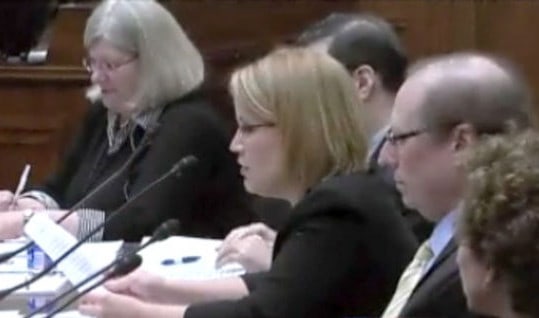
Since 2012, there have been a large number of outstanding but here-to-date sealed False Claims Act lawsuits against Texas dentists who billed Medicaid for orthodontic treatment from 2007 to 2011.
Some are known and high profile but there are 46 pages of Medicaid dentists’ names who don’t even know they are being sued yet.
These lawsuits were brought forward by Dr. Christine Ellis, the UT Southwestern orthodontist who testified before a congressional committee in Washington in April 2012 about massive Medicaid fraud in orthodontic billings by Texas dentists. Her qui tam lawsuits against the dentists were filed by the Dallas law firm Waters and Kraus and are to be prosecuted by the Civil Medicaid Fraud division of the Office of Attorney General.
There has not been much action on these lawsuits as of yet but there is now some good news for those who might be involved.
Federal court rules that difference in clinical judgment alone does not constitute falsity
Considering that the state as yet been able to prove any such allegations against any Medicaid dentist or orthodontist, a recent summary decision by a federal court in an Alabama case may well prove the death knell for these outstanding Texas qui tam cases.
The decision was made by U.S. District Court for the Northern District of Alabama in the case of hospice provider AseraCare which was being sued by the federal government on allegations that the company’s doctors had improperly certified terminally ill patients as being qualified for hospice care, based on allegations from former employees. The government’s one expert witness in reviewing 123 cases concurred and disputed the original diagnosis of “medical necessity” by the company doctors.
The court, in its summary judgment, ruled that “contradiction based on clinical judgment or opinion alone cannot constitute falsity under the FCA as a matter of law.”
To rule otherwise would “totally eradicate the clinical judgment required of certifying physicians”
To be specific here is an analysis in the National Law Review by attorneys Lawrence M. Kraus, Lisa M. Noller, Judith A. Waltz of Foley & Lardner LLP who reviewed the court’s decision:
The United States, based on claims from former employees, alleged that Aseracare violated the FCA by submitting Certifications of Terminal Illness (COTIs) to obtain Medicare coverage for hospice care that did not accurately demonstrate a prognosis of a “life expectancy of 6 months of less if the terminal illness runs its normal course.” The six-month terminality prognosis establishes eligibility for hospice services, and while coverage does not end if the beneficiary lives beyond that time, many FCA hospice cases have been that these COTIs overstated terminality to establish initial hospice eligibility. The Court found, however, that the only evidence the US provided to prove that the COTIs were objectively “false” was the testimony of its own medical expert who reviewed the medical records for the patients at issue, years after the certifications had been obtained during the ordinary course of treatment. This evidence was insufficient, according to the Court.
When two or more medical experts look at the same medical records and reach different conclusions about whether those medical records support the certifying physicians’ COTIs, all that exists is a difference of opinion. This difference of opinion among experts regarding the patients’ hospice eligibility alone is not enough to provide falsity, and the Government has failed to point the court to any objective evidence of falsity.
To rule otherwise would “totally eradicate the clinical judgment required of certifying physicians” by Federal rules and regulations.
Decision applicable to other health care fields
The ruling led AseraCare counsel J. S. “Chris” Christie Jr. to tell Bloomberg news that the decision could be applicable to “many different health-care providers in different types of health-care settings” beyond hospice care.
While this article is not a legal opinion, it seems likely that there is now a great deal of doubt about whether the claims of government expert witnesses such as Ellis regarding the scoring of HLD score sheets and the “fraudulent” assignment of “medical necessity” for orthodontic treatment by Medicaid dentists are enough to prosecute these outstanding qui tam cases. It is a difference of clinical judgment, barring other evidence.
FCA cases appear doomed
The most recent court decision, that by the 6th Court of Appeals in the Antoine Dental Center case, upheld the earlier administrative court finding that state expert witnesses in the Antoine case were not credible in their testimony regarding HLD scoring and that there was no evidence that the Antoine dentists had committed fraud. This is the latest in a long line of court victories for Medicaid dentists.
With this federal court decision, the pending qui tam cases certainly sound like they might be very difficult to prosecute now.

